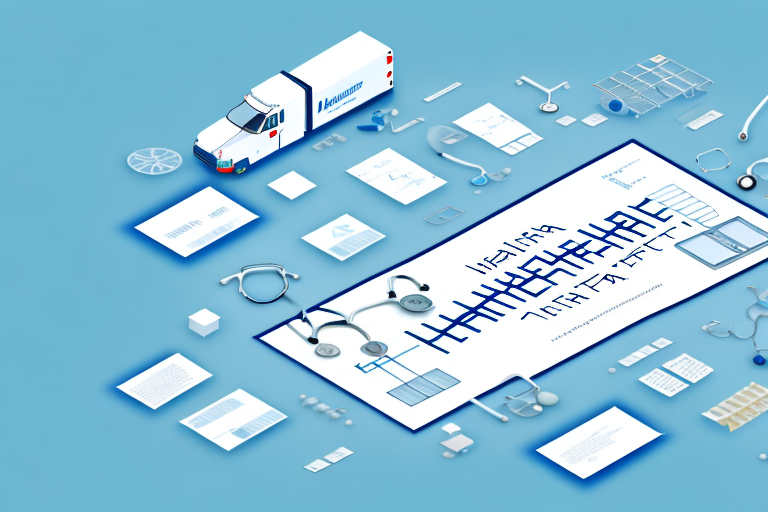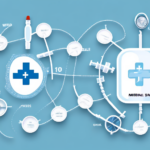The Critical Role of Logistics Management in Healthcare
In today's fast-paced and ever-evolving healthcare industry, logistics management is more important than ever before. Efficient healthcare logistics ensures that all medical equipment, supplies, and pharmaceuticals are transported and delivered in a timely and accurate manner, enabling healthcare providers to offer the best patient care possible. This article provides a comprehensive analysis of healthcare logistics management, its challenges, and strategies to optimize it for maximum efficiency.
Importance of Efficient Healthcare Logistics
Timely and accurate delivery of medical equipment, supplies, and pharmaceuticals is critical to the success of healthcare providers, medical facilities, and patients. According to a study published in the Journal of Healthcare Management, inefficiencies in healthcare logistics can lead to increased operational costs by up to 20%. Delays in the delivery of medical supplies can be life-threatening for patients, emphasizing the need for streamlined logistics.
Efficient logistics management not only benefits patients but also healthcare providers and facilities. By optimizing the supply chain and reducing waste, healthcare providers can save money and allocate resources more effectively. Additionally, efficient logistics help healthcare facilities maintain their reputation and attract more patients, as patient satisfaction is closely linked to the reliability of service delivery.
Current State of Healthcare Logistics Management
Despite its importance, the current state of healthcare logistics management faces several challenges. The industry often grapples with supply chain fragmentation, lack of visibility, and inefficient data management. According to a report by the World Health Organization (WHO), fragmented supply chains can result in up to 30% inefficiencies in resource allocation.
Supply Chain Fragmentation
Different healthcare facilities may have varying protocols for ordering, receiving, and storing supplies, leading to confusion and errors. Standardization efforts, such as adopting common data standards and best practices, are essential to streamline logistics management and improve efficiency.
Increased Demand for Personalized Medicine
The rise of personalized medicine and specialized treatments requires unique and specialized equipment and supplies. Healthcare logistics managers must collaborate closely with providers and suppliers to ensure the availability of these specialized items, which can be challenging to source and transport.
Key Challenges in Healthcare Logistics
Fragmented Supply Chains
Fragmented supply chains lead to disjointed coordination between different stages, causing delays in the transport and delivery of medical supplies. A lack of transparency and visibility makes it difficult to track and monitor the movement of supplies.
Maintaining Quality and Safety
Medical supplies, such as vaccines and medications, require specific temperature and humidity conditions. Failure to maintain these conditions can result in spoilage or degradation, posing serious risks to patient health. Ensuring the security of these supplies during transport and storage is also crucial to prevent theft or tampering.
Cost Management and Efficiency
Healthcare organizations must balance providing high-quality care with controlling costs. Efficient logistics management is necessary to minimize waste and reduce expenses while ensuring the availability of essential supplies. Inefficiencies can lead to unnecessary costs and delays, negatively impacting patient care.
Strategies to Optimize Healthcare Logistics
Supply Chain Optimization
Analyzing and identifying weaknesses in the supply chain allows for the implementation of measures to address them. Leveraging technologies like machine learning and artificial intelligence can automate processes and enhance decision-making. Collaboration among stakeholders in the supply chain increases visibility and improves communication, leading to more efficient logistics management.
Just-In-Time (JIT) Inventory Systems
Implementing a JIT inventory system involves ordering and receiving supplies only when needed, reducing waste and storage costs. This approach also improves inventory accuracy, as it requires frequent monitoring and tracking of supplies, ensuring that the right items are available when required.
Centralized Logistics Management
Consolidating logistics functions such as procurement, inventory management, and distribution into a single department enhances coordination and communication across the supply chain. A centralized system provides greater visibility, allowing for more effective monitoring and management of inventory levels and supply chain performance.
Advantages of Optimized Logistics Management
Cost Reduction
Streamlining logistics processes leads to significant cost savings by reducing waste and improving resource allocation. According to a McKinsey report, optimized supply chains can reduce operational costs by up to 15%.
Improved Patient Outcomes
Efficient logistics ensure that patients receive timely and accurate care, enhancing overall satisfaction and health outcomes. Reliable supply chains reduce the risk of medical errors and delays in treatment.
Enhanced Regulatory Compliance
Optimized logistics management ensures adherence to safety and quality standards, environmental regulations, and export/import laws. This compliance minimizes legal risks and maintains the integrity of the supply chain.
Measuring Healthcare Logistics Efficiency
Key Performance Indicators (KPIs)
- Inventory Turnover: Measures how often inventory is used and replaced over a specific period.
- Order Cycle Time: The total time from placing an order to receiving it.
- On-Time Delivery: The percentage of orders delivered on or before the scheduled time.
- Distribution Costs: Total costs associated with the distribution of supplies.
- Fill Rate: Percentage of orders fulfilled completely and on time.
Accurate measurement of these KPIs helps healthcare providers identify areas for improvement and develop strategies to optimize their logistics processes.
Leveraging Technology in Healthcare Logistics
Electronic Medical Records (EMRs)
Adopting EMRs aids in managing medical supplies, reducing manual errors, and avoiding supply chain disruptions by providing real-time data access.
Predictive Analytics and Big Data
Using predictive analytics helps forecast demand and anticipate supply chain disruptions, enabling proactive management of logistics processes.
Radio-Frequency Identification (RFID)
RFID technology enables real-time tracking and monitoring of inventory levels, improving inventory management and reducing waste.
Telemedicine
Telemedicine reduces the need for physical appointments, decreasing the demand for transportation and storage of medical supplies, thereby streamlining logistics processes.
Future Trends in Healthcare Logistics
The healthcare logistics industry is poised for significant advancements with the integration of emerging technologies. Trends such as blockchain technology, Internet of Things (IoT) devices, and autonomous vehicles are expected to revolutionize the sector. Enhanced collaboration between healthcare providers and suppliers, improved data management, and the seamless integration of technology into traditional logistics processes will drive the industry forward.
Best Practices for Enhancing Supply Chain Efficiency
- Increase Transparency: Enhance visibility across the supply chain to improve decision-making and responsiveness.
- Automate Inventory Management: Implement automated systems to reduce manual errors and improve inventory accuracy.
- Leverage Data Analytics: Use data analytics to identify inefficiencies and optimize supply chain processes.
Collaborating with Stakeholders for Improved Logistics
Effective collaboration among stakeholders, including suppliers, distributors, and regulatory bodies, is crucial for streamlining logistics processes. Building strong partnerships facilitates better coordination, enhances supply chain integration, and helps mitigate the impact of potential disruptions.
Addressing the Skills Gap in Healthcare Logistics
The healthcare logistics industry faces a shortage of skilled professionals, which hampers the implementation and management of efficient logistics processes. To address this, healthcare providers should invest in training and development programs, collaborate with educational institutions to promote careers in healthcare logistics, and establish mentorship programs to nurture new talent.
Regulatory Compliance and Risk Management
Healthcare logistics management must adhere to various regulatory requirements, including safety and quality standards, environmental regulations, and export/import laws. Healthcare providers and logistics professionals must stay informed about these regulations to ensure compliance and avoid potential legal issues. Implementing risk management strategies, such as contingency planning and securing insurance coverage, can help minimize the impact of unforeseen logistics disruptions.
Conclusion
Efficient healthcare logistics management is essential for the success of healthcare providers, medical facilities, and patients. By analyzing the current state of logistics management and implementing strategies such as supply chain optimization, leveraging advanced technologies, and fostering collaboration among stakeholders, healthcare organizations can enhance their logistics processes. This leads to reduced costs, improved patient outcomes, and overall enhanced quality of care.




















